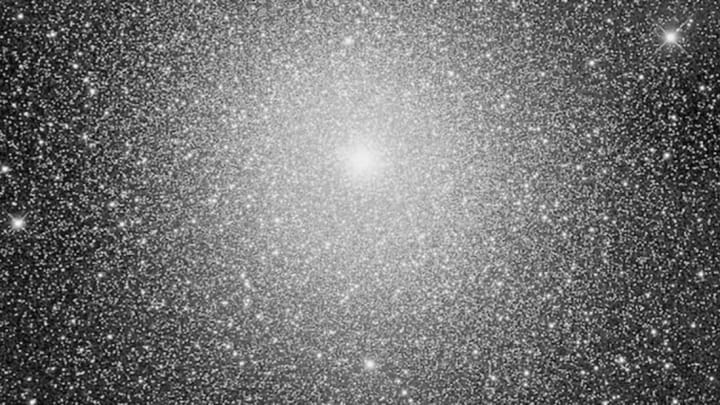Do black holes die? And if so, what happens when they're gone?
A new theory suggests that these galactic vacuums hit a point at which they can collapse no further. At this moment, a black hole ceases to exist, and it explodes into its exact opposite: a white hole. Like a galactic purge, all the matter and light sucked in by the black hole is now spewed outward.
White holes aren’t new to the science world. Einstein hypothesized about their existence. But this new idea from theoretical physicists Hal M. Haggard and Carlo Rovelli [PDF] of Aix-Marseille University in France looks at how and why white holes might form. Their work is based on a few rules of quantum theory, which is a notoriously complicated field. To be brief, one approach says when you zoom in on the granular things that make up space-time, at the smallest level you’ll find tiny “loops” that can’t be compressed into anything smaller. A black hole forms when a dying star collapses on itself and its matter is condensed. Haggard and Rovelli say that, because these loops can’t get any smaller, they would halt the collapse, and produce outward pressure called a “bounce,” causing the black hole to explode into a white hole that can't let anything in.
This process happens almost instantaneously, in a few thousandths of a second. But because the gravitational pull of black holes “dilate” time, this process would appear to happen over billions if not trillions of years for outside observers. For example, the researchers think a black hole with the same mass as the sun would seem to us to take “about a thousand trillion times the current age of the Universe to convert into a white hole.”
All of this is theoretical at the moment—there’s no observational evidence of white holes. But if accurate, the findings could mean that some galactic flares are actually the last gasps of some really old black holes. And researchers would have an answer to a long-standing question: Can information escape a black hole? If white holes spit matter back out into the universe, the answer would be yes.
